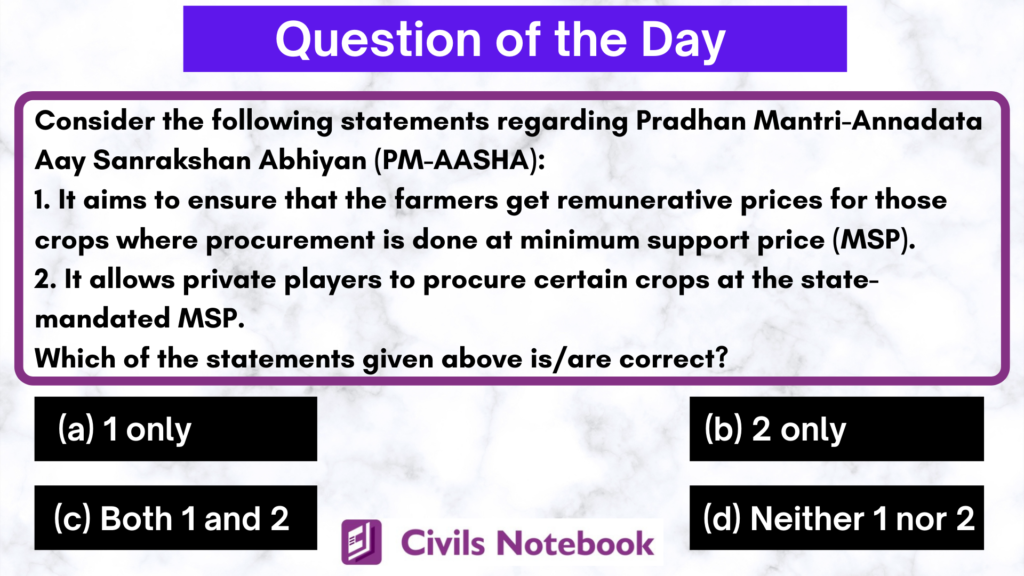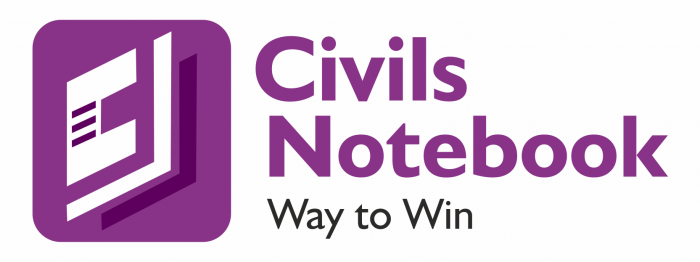
Solution:
- Under the Ministry of Agriculture and Farmer’s Welfare, Pradhan Mantri-Annadata Aay Sarakshan Abhiyaan (PM-AASHA) was launched in 2018 for procurement of paddy, wheat and other cereals and coarse grains where procurement takes place at Minimum Support Prices. Hence the statement 1 is correct.
- PM AASHA has three sub-schemes:
- Price Support Scheme (PSS): Under this scheme, physical procurement of pulses, oilseeds and Copra will be done by Central Nodal Agencies with proactive role of State Governments. In Addition to NAFED, FCI will take up PSS operations in state/districts. The Procurement will be borne by Central Government as per the norms.
- Price Deficiency Payment Scheme: (PDPS): This will cover all oilseeds for which MSP is notified and Centre will pay the difference between the MSP and actual selling/ model price to the farmer directly into his bank account. Farmers who sell their crops in recognized mandis within the notified period can benefit from it.
- Pilot of Private Procurement and Stockiest Scheme (PPSS): In the case of oilseeds, the States will have the option to roll out PPSS in select districts where a private player can procure crops at MSP when market prices drop below MSP. Hence statement 2 is correct.
The pilot district/selected APMC(s) of district will cover one or more crop of oilseeds for which MSP is notified.
The selected private agency shall procure the commodity at MSP in the notified markets during the notified period from the registered farmers in consonance with the PPSS Guidelines, whenever the prices in the market fall below the notified MSP and whenever authorized by the state/UT government to enter the market and maximum service charges up to 15% of the notified MSP will be payable.
Hence Option C is the correct choice.

